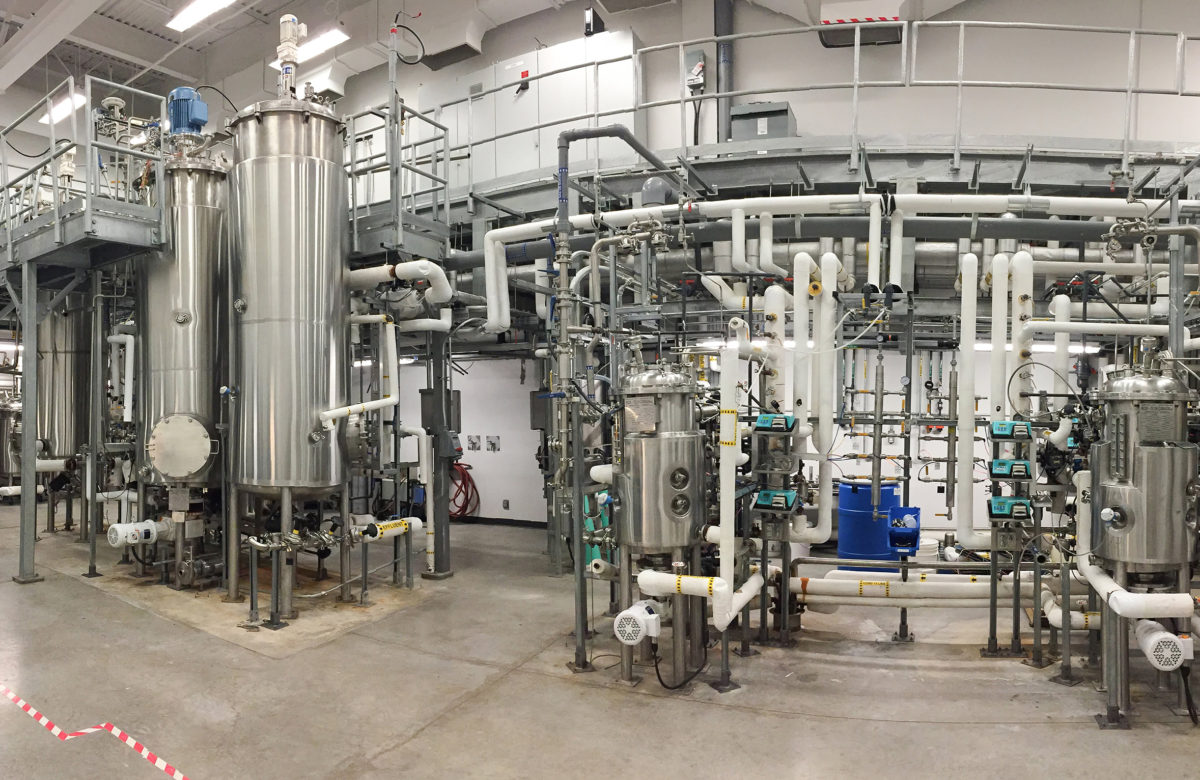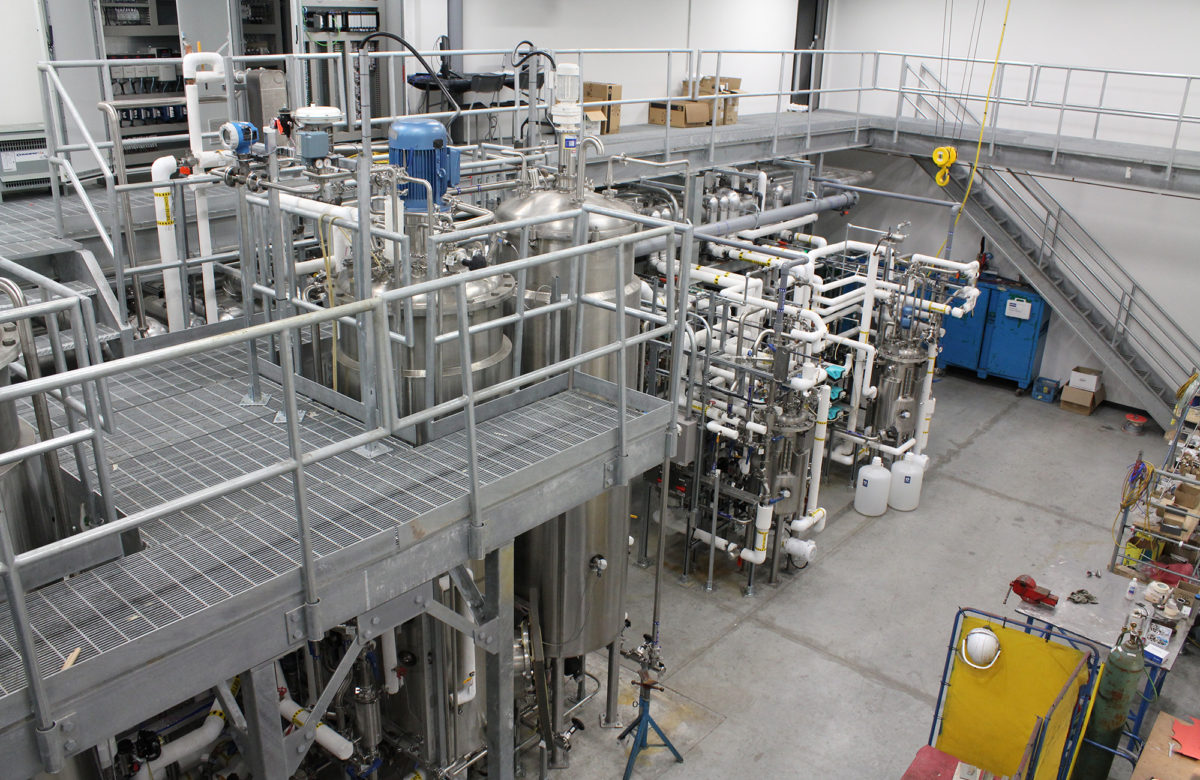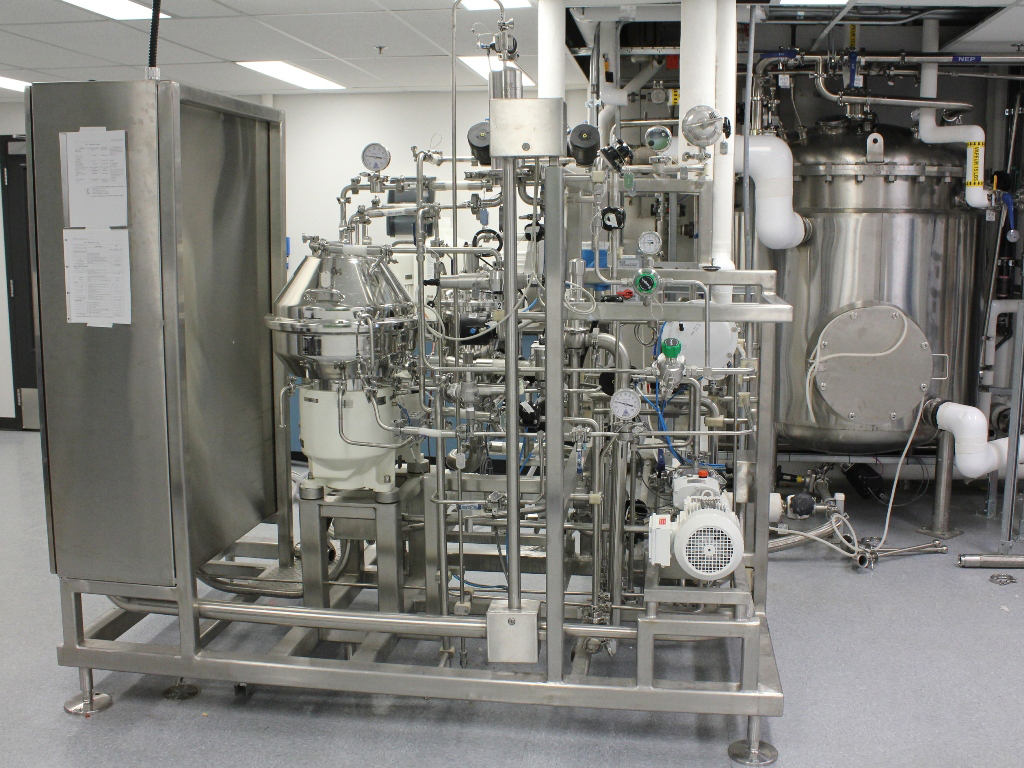The Environmental Biotechnology Laboratory (LBE) offers its multidisciplinary expertise and state-of-the-art facilities to industry and the scientific community for developing and scaling up production processes for value-added bioproducts. LBE’s facilities cover all production steps, including fermentation, upstream and downstream processes.
The Environmental Biotechnology Laboratory studies the production of bioinsecticides, bioplastics, industrial enzymes, and other value-added products, as well as the processing of fermentable waste such as sewage sludge and agri-food wastewater. Bioreactors of various sizes allow processes to be developed and fine tuned on a pre-commercial scale.
- Two Biosafety Level 1 fermentation laboratories, one exclusively used for conventional substrates and the other for unconventional substrates, both equipped with a series of bioreactors (2 x 5 L, 2 x15 L, 2 x150 L, 1 x 2000 L)
- A Biosafety Level 1 fermentation laboratory, exclusively used for conventional substrates and equipped with a series of bioreactors (2 x 5 L, 2 x15 L, 2 x150 L, 1 x 2000 L)
- Equipment for the upstream processing of unconventional fermentation substrates, including an industrial sieve and two hydrolyzers (150 and 2000 L – the latter can also be used as a 2000 L bioreactor)
- Equipment for semi-industrial downstream processing of fermented broths, including an industrial disk centrifuge, a microfiltration/ultrafiltration system, a spray dryer, and a freeze dryer
- An environmental chamber (Biosafety Level 2) for inoculant production and strain storage as well as quality control and characterization of purified microbial products
- An analytical laboratory equipped with a GC-MS, an LC-MS-MS, and a cytofluorometer for characterization of unconventional substrates, quality control of certain microbial products, and process monitoring.
- Treatment of organic waste and increasing its biodegradability
- Isolation of wild strains from organic waste
- Production of microbial and fungal biopesticides, microbial inoculants, industrial enzymes, bioplastics, and bio-hydrogen
- Study of aerobic and anaerobic fermentation parameters (culture media, strains, microorganisms, and growing conditions)
- Optimization of bioprocesses (experimental design, statistical analysis, fed-batch culture, etc.)
- Scale up of bioprocesses to 2000 L
- Concentration and recovery of microbial products on a semi-industrial scale through continuous or semi-continuous centrifugation, microfiltration, and ultrafiltration
- Semi-industrial formulation of microbial products in granular or powder form
- Semi-industrial purification of microbial products by ion-exchange chromatography or lyophilisation
- Feasibility, technical, and economic studies
- Characterization of microbial flora in environmental matrices
- Analysis of toxic organic compounds by GC/MS or LC/MS/MS
- Design and fine tuning of methods for analyzing toxic organic compounds by GC/MS or LC/MS/MS
- Physical and chemical analyses of surface water, sediments, soil, groundwater, wastewater, and sewage sludge.
- Municipal, industrial, or agricultural waste as a basic substrate
- Fresh biomass and synthetic or conventional culture media
- New, genetically modified, or existing microbial strains
- New or existing industrial fermentation processes
Contacts
Annalisse Bertsch
Responsible Research Officer
Phone: 418 654-8060
annalisse.bertsch@inrs.ca
Kokou Adjallé
Professor and Scientific head
Phone: 418-654-2610
kokou.adjalle@inrs.ca
Tarek Rouissi
Professor and Scientific co-head
Phone : 418 654-2542
tarek.rouissi@inrs.ca
Edouard Lauzier
Business development advisor
Phone: 418 654-3728
edouard.lauzier@inrs.ca
Environmental Biotechnology Laboratory
Institut national de la recherche scientifique
Laboratory for Scientific and Technological Innovation in Environment
Eau Terre Environnement Research Centre
2605 blvd. du Parc-Technologique
Québec City, Quebec G1P 4S5
Canada





